A s one of the official AFFHO Congress 2015 bloggers, it is my pleasure to interview speakers and learn more about them prior to the Congress in Canberra in March 2015. Organised by AFFHO (Australasian Federation of Family History Organisations), Congress is only held every three years. It attracts some of the best speakers in Australasia and overseas, hundreds of keen family history enthusiasts and lots of trade exhibitors and without doubt is the major genealogy, family history and heraldry event in Australasia. See the program here and for information on sponsors and exhibitors see here.
s one of the official AFFHO Congress 2015 bloggers, it is my pleasure to interview speakers and learn more about them prior to the Congress in Canberra in March 2015. Organised by AFFHO (Australasian Federation of Family History Organisations), Congress is only held every three years. It attracts some of the best speakers in Australasia and overseas, hundreds of keen family history enthusiasts and lots of trade exhibitors and without doubt is the major genealogy, family history and heraldry event in Australasia. See the program here and for information on sponsors and exhibitors see here.
I am going to start my series of interviews with one of the keynote speakers Richard Reid.
SH: Are you a genealogist, researcher, historian or representing your organisation?
RR: Simply a retired public historian representing myself. Still actively researching – when do we ever give that up?
SH: I wonder if you could tell us a little about your background?
RR: Worked, over 42 years, as a state high school teacher, research officer, museum education officer, museum exhibition curator and public historian – always for government organisations such as the Australian War Memorial, the Senate of the Commonwealth of Australia, the National Museum of Australia and the Commemorations Branch of the Department of Veterans’ Affairs. Special fields are the experience of Australians at war, especially World War 1, and the Irish in Australia. Have published widely in those areas as well as conducting tours to Ireland, Gallipoli and the old Western Front in France and Belgium. Currently working on projects relating to Gallipoli, Irish Famine emigration to Australia and Irish convict transportation. Very proud of having produced the NMA’s major temporary exhibition ‘Not Just Ned – a true history of the Irish in Australia’ and DVA’s website on Australians on the Western Front.
SH: How has history improved or changed your life?
RR: Put simply (how else should one put it?) the researching, teaching and presenting of history has been my life. I have always found Australian family historians hungry for sensible and balanced approaches to the whole question of the Irish input into Australia and how to look at the pre-emigration life of their ancestors in Ireland.
SH: What do you love most about history?
RR: Where would I start? Thinking ‘historically’ is a whole way of looking at the world around you, trying to see how it has evolved, why it is like it is. Also there is a need to duly respect the past as much as possible on its own terms and not be constantly trying to project our own concerns and values back on to generations who did not necessarily share them. I rarely do family history specifically but I have always been on the lookout for stories and analyses which help me to understand what life might have been like for my own ancestors. My interest in 19th century Irish emigration to Australia has led me naturally to connect with family historians because they are the ones doing the intensive research work that allows people like me to come up with broader narratives about that process.
SH: Have you previously attended Congress?
RR: Yes in 1986 and 1988.
SH: What are your key topics for Congress?
RR: Some ways to think about the emigration and pre-emigration experience of your ancestors in Ireland, and material that might help you to appreciate what it was like, as an Australian soldier, to fight in France and Belgium during World War 1.
SH: How do you think your topics will help the family historians at Congress 2015?
RR: I have no idea really. Such events should be approached with an open heart and mind. Every lecturer has something to tell you you never knew before and even the most tedious presentation has a gem somewhere just for you!
SH: What do you think are the benefits of attending a large conference like this for you personally and for others attending?
RR: For me it’s always the honour of being able to talk to, one hopes, an interested audience about a topic (topics) one feels passionately about. Moreover, the questions you get can often open up a whole new line of thinking, introduce you to new sources, and so on. What else are we doing all this stuff for if not, in some way, to impart it to others, to share it before it’s all too late. The day nobody moves beyond the computer screen because it’s all, supposedly, ‘on the net’ that’s the moment to take up golf, fishing or anything else but history.
SH: Do you have a favourite piece of advice or a tip or trick you can share with conference attendees?
RR: Keep looking – that’s all I can say. Some of my own most exciting discoveries have come about completely by chance but they only made sense because of the huge amount of research work, thinking, and general mucking about that proceeded them. Some historian once said that understanding the past is all about ‘context’. Context takes a lifetime to acquire so you will never know the half of it.
SH: Is there somewhere we can connect with you online?
RR: rer71144 at gmail.com
SH: Thank you Richard for sharing your thoughts with us.
Over the next few months I will be bringing you more interviews with Congress speakers. My official blogging team partners Jill Ball and Pauleen Cass will be doing similar interviews and bring you news of Congress as it comes to hand. I am looking forward to catching up with and making new geneamates as well as attending some great speaker sessions next March. Hope to see you there too.
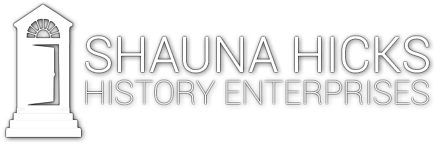
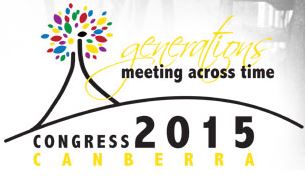
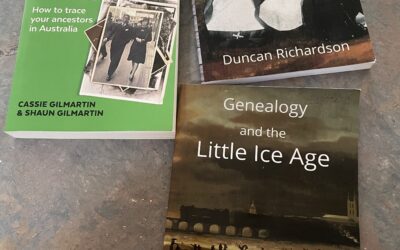
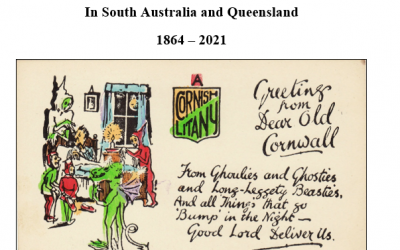

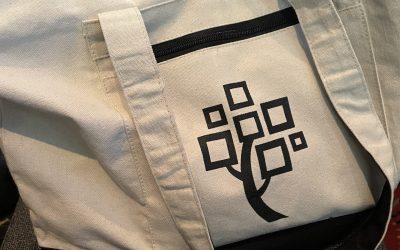
I can’t wait to hear Richard talk at Congress…he has so much knowledge and experience! I especially liked his comment about context. Thanks Shauna and Richard for sharing this story.